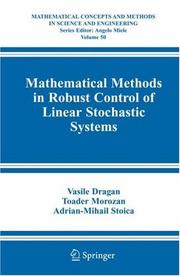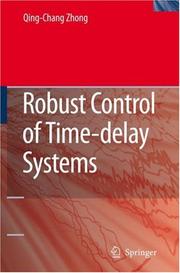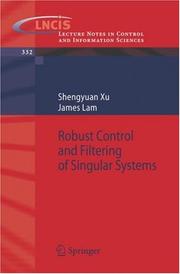| Listing 1 - 4 of 4 |
Sort by
|
Book
ISSN: 16110994 ISBN: 3540294155 9783540294153 3540312692 Year: 2006 Volume: 3 Publisher: Berlin Springer
Abstract | Keywords | Export | Availability | Bookmark
 Loading...
Loading...Choose an application
- Reference Manager
- EndNote
- RefWorks (Direct export to RefWorks)
The second edition features new material, reorganization of text, improved examples and software tools, updated information, and correction of errors. This is mainly the result of numerous eager readers around the world who have detected misprints, tested program examples, and suggested alternative ways of doing things. I am greatful to everyone who has sent emails and contributed with improvements. The most important changes in the second edition are brie?y listed below. Already in the introductory examples in Chapter 2 the reader now gets a glimpse of Numerical Python arrays, interactive computing with the IPython shell, debugging scripts with the aid of IPython and Pdb, and turning “?at” scripts into reusable modules (Chapters 2. 2. 5, 2. 2. 6, and 2. 5. 3 are added). Several parts of Chapter 4 on numerical computing have been extended (- pecially Chapters 4. 3. 5, 4. 3. 7, 4. 3. 8, and 4. 4). Many smaller changes have been implemented in Chapter 8; the larger ones concern exemplifying Tar archives instead of ZIP archives in Chapter 8. 3. 4, rewriting of the material on generators in Chapter 8. 9. 4, and an example in in Chapter 8. 6. 13 on adding new methods to a class without touching the original source code and without changing the class name. Revised and additional tips on op- mizing Python code have been included in Chapter 8. 10. 3, while the new Chapter 8. 10.
681.3*G4 --- 681.3*D3 --- 681.3*D1 --- 519.68 --- 519.68 Computer programming --- Computer programming --- 681.3*D3 Programming languages --- Programming languages --- 681.3*G4 Mathematical software: algorithm analysis; certification and testing; efficiency; portability; reliability and robustness; verification --- Mathematical software: algorithm analysis; certification and testing; efficiency; portability; reliability and robustness; verification --- 681.3*D1 Programming techniques--See also {681.3*E} --- Programming techniques--See also {681.3*E} --- Python (Computer program language) --- Science --- Data processing --- Data processing. --- Python (Langage de programmation) --- Sciences --- Informatique --- EPUB-LIV-FT LIVMATHE SPRINGER-B --- Electronic data processing --- Scripting languages (Computer science) --- Science - Data processing

ISBN: 1280803525 9786610803521 0387359249 0387305238 1441921435 Year: 2006 Publisher: New York : Springer,
Abstract | Keywords | Export | Availability | Bookmark
 Loading...
Loading...Choose an application
- Reference Manager
- EndNote
- RefWorks (Direct export to RefWorks)
Linear stochastic systems are successfully used to provide mathematical models for real processes in fields such as aerospace engineering, communications, manufacturing, finance and economy. This monograph presents a useful methodology for the control of such stochastic systems with a focus on robust stabilization in the mean square, linear quadratic control, the disturbance attenuation problem, and robust stabilization with respect to dynamic and parametric uncertainty. Systems with both multiplicative white noise and Markovian jumping are covered. Key Features: -Covers the necessary pre-requisites from probability theory, stochastic processes, stochastic integrals and stochastic differential equations -Includes detailed treatment of the fundamental properties of stochastic systems subjected both to multiplicative white noise and to jump Markovian perturbations -Systematic presentation leads the reader in a natural way to the original results -New theoretical results accompanied by detailed numerical examples -Proposes new numerical algorithms to solve coupled matrix algebraic Riccati equations. The unique monograph is geared to researchers and graduate students in advanced control engineering, applied mathematics, mathematical systems theory and finance. It is also accessible to undergraduate students with a fundamental knowledge in the theory of stochastic systems.
Robust control --- Linear systems. --- Stochastic systems. --- Mathematical models. --- Systems, Stochastic --- Stochastic processes --- System analysis --- Systems, Linear --- Differential equations, Linear --- System theory --- Robustness (Control systems) --- Automatic control --- System theory. --- Distribution (Probability theory. --- Numerical analysis. --- Systems Theory, Control. --- Probability Theory and Stochastic Processes. --- Numerical Analysis. --- Mathematical analysis --- Distribution functions --- Frequency distribution --- Characteristic functions --- Probabilities --- Systems, Theory of --- Systems science --- Science --- Philosophy --- Systems theory. --- Distribution (Probability theory) --- Probabilities. --- Probability --- Statistical inference --- Combinations --- Mathematics --- Chance --- Least squares --- Mathematical statistics --- Risk

ISBN: 1280611138 9786610611133 1846282659 1846282640 1849965668 Year: 2006 Publisher: London : Springer,
Abstract | Keywords | Export | Availability | Bookmark
 Loading...
Loading...Choose an application
- Reference Manager
- EndNote
- RefWorks (Direct export to RefWorks)
Systems with delays appear frequently in engineering; typical examples include communication networks, chemical processes and tele-operation systems. The presence of delays makes system analysis and control design much more complicated. During the last decade, we have witnessed significant developments in robust control of time-delay systems. This volume presents a systematic and comprehensive treatment for robust (H-infinity) control of such systems in the frequency domain. The emphasis is on systems with a single input or output delay, although the delay-free part of the plant can be multi-input-multi-output, in which case the delays in different channels should be the same. This synthesis of the author’s recent work covers the whole range of robust control of time-delay systems: from controller parameterization and design to controller implementation; from the Nehari and one-block problems to the four-block problem; from theoretical developments to practical issues. The major tools used in this book are similarity transformation, the chain-scattering approach and J-spectral factorization. The idea is, in the words of Albert Einstein, to "make everything as simple as possible, but not simpler". A website associated with the book, is a source of MATLAB® and Simulink® material which will assist in the simulation of the material in the text. Robust Control of Time-delay Systems is self-contained and will interest control theorists, researchers and mathematicians working with time-delay systems and engineers looking to design commercial controllers or to use them in plants, biosystems or communication systems with time delays. Its methodical approach will also be of value to graduates studying either general (robust) control theory or its particular applications in time-delay systems.
Robust control. --- Time delay systems. --- Time delay control --- Time delay control systems --- Time delay controllers --- Time-delayed systems --- Feedback control systems --- Process control --- Robustness (Control systems) --- Automatic control --- Computer engineering. --- Biochemical engineering. --- System theory. --- Telecommunication. --- Mechanical engineering. --- Control and Systems Theory. --- Electrical Engineering. --- Biochemical Engineering. --- Systems Theory, Control. --- Communications Engineering, Networks. --- Mechanical Engineering. --- Engineering, Mechanical --- Engineering --- Machinery --- Steam engineering --- Electric communication --- Mass communication --- Telecom --- Telecommunication industry --- Telecommunications --- Communication --- Information theory --- Telecommuting --- Bio-process engineering --- Bioprocess engineering --- Biochemistry --- Biotechnology --- Chemical engineering --- Computers --- Systems, Theory of --- Systems science --- Science --- Design and construction --- Philosophy --- Systems theory. --- Control engineering. --- Electrical engineering. --- Electric engineering --- Control engineering --- Control equipment --- Control theory --- Engineering instruments --- Automation --- Programmable controllers

ISBN: 9783540327974 3540327975 3540328505 9781281390431 1281390437 Year: 2006 Publisher: Berlin, Heidelberg : Springer Berlin Heidelberg : Imprint: Springer,
Abstract | Keywords | Export | Availability | Bookmark
 Loading...
Loading...Choose an application
- Reference Manager
- EndNote
- RefWorks (Direct export to RefWorks)
Singular systems have been widely studied in the past two decades due to their extensive applications in modelling and control of electrical circuits, power systems, economics and other areas. Interest has grown recently in the stability analysis and control of singular systems with parameter uncertainties due to their frequent presence in dynamic systems, which is much more complicated than that of state-space systems because controllers must be designed so that the closed-loop system is not only robustly stable, but also regular and impulse-free (in the continuous case) or causal (in the discrete case), while the latter two issues do not arise in the state-space case. This monograph aims to present up-to-date research developments and references on robust control and filtering of uncertain singular systems in a unified matrix inequality setting. It provides a coherent approach to studying control and filtering problems as extensions of state-space systems without the commonly used slow-fast decomposition. It contains valuable reference material for researchers wishing to explore the area of singular systems, and its contents are also suitable for a one-semester graduate course.
Robust control. --- Filters (Mathematics) --- System analysis. --- Commande robuste --- Filtres (Mathématiques) --- Analyse de systèmes --- Engineering. --- Systems theory. --- Vibration. --- Control Engineering. --- Vibration, Dynamical Systems, Control. --- Systems Theory, Control. --- Robust control --- System analysis --- Network theory --- Systems analysis --- Robustness (Control systems) --- Construction --- System theory. --- Dynamical systems. --- Dynamics. --- Control engineering. --- Robotics. --- Mechatronics. --- Control, Robotics, Mechatronics. --- Cycles --- Mechanics --- Sound --- Systems, Theory of --- Systems science --- Science --- Philosophy --- Dynamical systems --- Kinetics --- Mathematics --- Mechanics, Analytic --- Force and energy --- Physics --- Statics --- Mechanical engineering --- Microelectronics --- Microelectromechanical systems --- Automation --- Machine theory --- Control engineering --- Control equipment --- Control theory --- Engineering instruments --- Programmable controllers
| Listing 1 - 4 of 4 |
Sort by
|

 Search
Search Feedback
Feedback About UniCat
About UniCat  Help
Help News
News